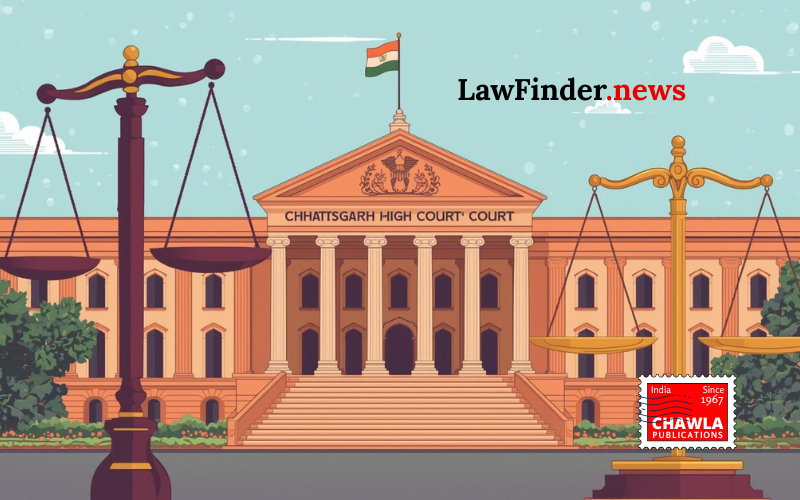Petitioners' Challenge to Advocate Enrollment Requirement Dismissed
Raipur, September 16, 2025 – In a significant ruling, the Chhattisgarh High Court has dismissed a series of writ petitions challenging the amendment in the Chhattisgarh Lower Judicial Service (Recruitment and Conditions of Service) Rules, 2006. The amendment in question required candidates for the position of Civil Judge (Junior Division) to be enrolled as advocates under the Advocates Act, 1961.
The division bench comprising Chief Justice Ramesh Sinha and Justice Bibhu Datta Guru delivered the judgment, addressing the petitions filed by Himalaya Ravi and others against the State of Chhattisgarh and other respondents. The petitioners, including law graduates and government-employed legal professionals, contended that the amendment was discriminatory and violated Articles 14 and 16 of the Indian Constitution by imposing an arbitrary distinction between private practice advocates and government or prosecuting officers who are not formally registered under the Advocates Act, 1961.
The petitioners argued that the amendment was contrary to the Supreme Court's directive in the All India Judges Association case, which mandates a minimum of three years of practice as an advocate for eligibility to join the Judicial Service. They contended that the amendment was also against the ruling in Deepak Agarwal v. Keshav Kaushik & Others, where the Supreme Court recognized prosecuting officers as advocates for eligibility in judicial service recruitment.
The Chhattisgarh High Court, under the bench of Chief Justice Ramesh Sinha and Justice Bibhu Datta Guru, held that the qualifications prescribed by the legislature could not be dismissed solely because a group of aspirants felt aggrieved. The court found no evidence of legislative incompetence, arbitrariness, or violation of constitutional guarantees. The court emphasized that the recruitment processes must adhere to the rules applicable at the time of the advertisement.
The petitioners had further contended that the amendment dated July 5, 2024, and the subsequent advertisement dated December 23, 2024, violated Articles 14 and 16 of the Indian Constitution by discriminating against prosecuting officers who were not enrolled under the Advocates Act, 1961. However, the court found no merit in this argument, stating that the requirement for candidates to be enrolled as advocates was in line with the Supreme Court's directives in the All India Judges Association v. Union of India case, which mandates three years of practice as an advocate for eligibility in judicial service.
The Chhattisgarh High Court dismissed the petitions, noting that the petitioners had failed to demonstrate any legislative incompetence, arbitrariness, or violation of constitutional guarantees. The court also identified the petitions as an abuse of its extraordinary jurisdiction, criticizing the petitioners' attempt to challenge statutory rules for a "backdoor entry" into the judicial service.
In conclusion, the Chhattisgarh High Court's judgment reaffirmed the importance of adhering to legislative qualifications for public employment and upheld the decision to require Civil Judge (Junior Division) candidates to be enrolled as advocates. The court's decision aligns with the Supreme Court's directives in the All India Judges Association case, which emphasized the necessity of practical legal experience for judicial appointments.
Himalaya Ravi v. State of Chhattisgarh, (Chhattisgarh)(DB) : Law Finder Doc Id # 2780956




